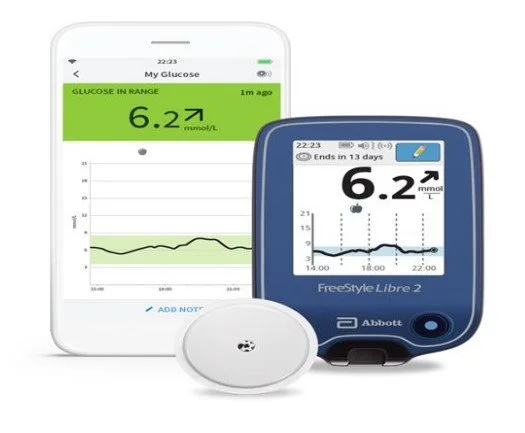Dr Francesco Zaccardi on improving lives through real-world evidence
We spoke with Dr Francesco Zaccardi, Honorary Consultant in Cardiometabolic Medicine and Associate Professor in Clinical Epidemiology and Health Data Science at the University of Leicester, based at the Leicester Diabetes Centre (LDC), about his career journey and the experiences that shaped his passion for real-world evidence and diabetes research.
Francesco began his academic career in Italy, where he studied medicine and specialised in Internal Medicine. It was during these early years that his interest in diabetes research was first sparked.
“I worked closely with mentors who highlighted the importance of evidence-based approaches to care,” he explains. “These formative experiences deepened my commitment to improving patient outcomes through rigorous research, and ignited a long-standing interest in data science, public health, and statistical modelling.”
Data science is about turning large amounts of health information into meaningful insights that help doctors make better decisions and improve patient care.
After relocating to the UK in 2013, Francesco pursued further study at the University of Leicester, completing a PhD in Clinical Epidemiology and a MSc in Medical Statistics.
Since 2014, Francesco has been part of the LDC, where he co-founded the Leicester Real World Evidence Unit (LRWEU), with LDC Co-Director, Professor Kamlesh Khunti. He now serves as its Deputy Director, playing a key role in applying population-level data to real-world clinical questions.
“Joining the LDC was a natural progression,” says Francesco. “I was drawn by its reputation as one of Europe’s leading diabetes research, and by its collaborative, interdisciplinary environment. The LDC’s integration of research, education, and innovation aligns perfectly with both my clinical and academic goals.”
As both a scientist and a passionate football fan, Francesco shared that 2016 was one of the most exciting years in his early career with the LDC.
He explains: “That year Leicester City Football Club won the Premier League, and it was also the year I published several high-impact papers with LDC colleagues which I am very proud of, and which further fueled my passion for data in medicine.”
More than a decade since he joined the team, Francesco remains inspired by LDC’s ethos. “The most rewarding aspect of working at LDC is the strong culture of collaboration,” he says. “Being surrounded by internationally recognised experts who are committed to improving the lives of people with diabetes is incredibly motivating.”
Francesco’s research focuses on using real-world data, particularly from electronic health records, to better understand how type 2 diabetes affects diverse populations and how treatments perform outside of controlled clinical trials.
“By analysing large-scale datasets, I explore evolving patterns of diabetes-related complications, such as dementia and cancer, and to identify treatment strategies that can be implemented to improve patient outcomes. This approach ensures our findings have a direct and practical impact on patient care.”
His work has already made a tangible difference. Francesco adds: “Studies I’ve led on glucose-lowering therapies have helped inform clinical guidelines, leading to more personalised treatment plans that improve glycaemic control and reduce complications for people with diabetes.”
Professor Kamlesh Khunti, Co-Director of the LDC shared his appreciation for Francesco’s contributions to the team: “Francesco has had outstanding career progression since joining the Leicester Diabetes Centre as a PhD student. He is a truly exceptional individual within our research team and has demonstrated remarkable expertise, dedication, and leadership over the years.”
Looking to the future, Francesco is eager to harness the potential of emerging technologies, explaining: “I’m particularly excited about how machine learning and AI can support predictive modelling,” he says. “I hope to apply these tools to identify new therapeutic strategies and contribute to large-scale public health efforts aimed at preventing diabetes and its complications.”
Dr Francesco Zaccardi



